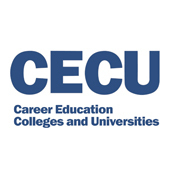Negotiated Rulemaking Update: Department of Education prevents vote on holding all schools accountable for outcomes

Career Education Colleges and Universities
Releases & Statements
1/19/2022
Arlington, VA – Today, during the U.S. Department of Education’s Institutional and Programmatic Eligibility Committee negotiated rulemaking meeting, the committee began discussing reimposing gainful employment (GE) regulations. As part of the negotiated rulemaking process, the committee takes regular “consensus checks” to see if negotiators are generally supportive of various ideas that the Department has put forth for consideration.
The Department took a consensus check at the request of Anne Kress, the negotiator representing community colleges, on the idea of resurrecting the 2014 GE rules. All negotiators, except for Brad Adams, the negotiator representing for-profit colleges, voted in favor of using the 2014 GE rules as a baseline for new regulations that would apply only to for-profit colleges and non-degree programs offered by nonprofit and public colleges. All other programs at nonprofit and public colleges would be exempt from the accountability rules.
Mr. Adams made a motion to take a consensus check on applying the 2014 GE regulations to all institutions of higher education (IHEs), including degree granting programs at nonprofit and public institutions, using an existing statutory authority under Section 454(a)(4) of the Higher Education Act. That authority was identified in a report published by the left-leaning National Student Legal Defense Network as a basis for the Department of Education to create a student-outcome based “quality assurance system” for all institutions.
The Department declined to grant Mr. Adams’ request and did not comment on the fact that Section 454(a)(4) could be used to apply 2014 GE debt-to-earnings accountability requirements to all institutions. In explaining the Department’s decision to deny a vote on accountability for all IHEs, the Department’s federal negotiator, Gregory Martin, said the following, “the earlier request for a temperature check on using [the] 2014 [GE rule] as a baseline was in the context of regulations that were promulgated at the time and did specifically refer to GE …The question was asked what metrics should we impose for GE. I think we’re talking more about a philosophical statement at this point, should the former GE rules from 2014 apply across the board.” (Emphasis added). Mr. Martin concluded his statement by saying that the Department is not open to any consensus checks on this issue.
“We applaud Mr. Adams for pressing the Department to use existing authority within the Higher Education Act to apply gainful employment regulations to all schools in all sectors,” said Dr. Jason Altmire, President and CEO of CECU. “We strongly believe all students deserve the same protections, but the 2014 gainful employment regulations exempted institutions serving more than 75 percent of students enrolled in higher education. As negotiations continue, we hope the Department will give serious consideration to equity across higher education. Despite having the statutory authority to do so, the Department does not appear to have the political will to apply an accountability system to all schools, even though there is overwhelming evidence that some nonprofit and public institutions are not serving students well.”
###
About Career Education Colleges and Universities
Career Education Colleges and Universities (CECU) is the national association serving the proprietary higher education sector.
Please direct media inquiries to Devin Miller, Director of Communications at Devin.Miller@career.org.







